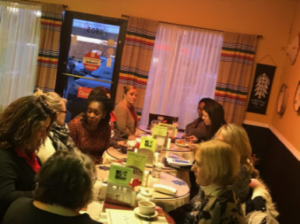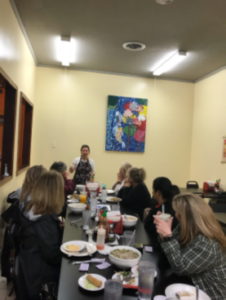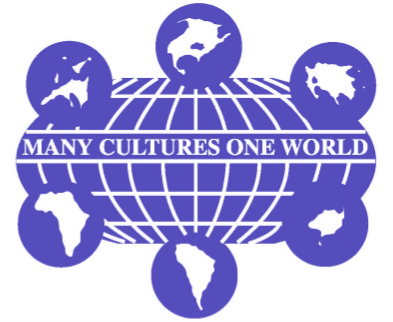Authored By: Zaida Ortiz, President Fort Wayne Chapter of the Transcultural Nursing Society
 As a new networking chapter of the Transcultural Nursing Society, it has been a most wondrous year (2019). The Fort Wayne chapter has been engaged in various activities to assist members to learn about the diverse ethnic com-communities that live in Allen County. One of our objectives is to expose members to various ethnic cultures, and glean as much as possible from the people. The goal is to have members who are and feel more competent in providing culturally appropriate care to the clients/patients they serve.
As a new networking chapter of the Transcultural Nursing Society, it has been a most wondrous year (2019). The Fort Wayne chapter has been engaged in various activities to assist members to learn about the diverse ethnic com-communities that live in Allen County. One of our objectives is to expose members to various ethnic cultures, and glean as much as possible from the people. The goal is to have members who are and feel more competent in providing culturally appropriate care to the clients/patients they serve.
We were privileged to have speakers representing Guatemala, Burmese refugees, and even a World War II survivor who arrived to this country as an immigrant and later became a U.S. citizen. We were in awe, and humbled, as we listened to their stories of struggle and strength to endure to most unfathomable experiences. My take away in this is the human spirit is the same, regardless of the ethnicity.
We also tried a different platform to learning. We approached various local ethnic restaurant owners and inquired about the possibility of hosting an educational dinner outing at their establishment. The educational dinner outings consist of the owner or someone from the establishment to dialogue with the group regarding their cultural beliefs and values, while members of the chapter ask questions and enjoy their paid meal.
For our first educational dinner outing, chapter members attended the educational dinner outing at Queen of Sheba, which serves Ethiopian cuisine. Participants looked forward to learning and trying exotic food. We enjoyed the ambiance and the very flavorful strong aroma of coffee beans roasting over a fire as our palates eagerly waited for the delicious food. I was shocked to learn the calendar year is not the same as it is in the Unit-ed States. Ethiopians observe the Julian calendar, which is seven years behind when compared to the calendar we observe in the United States. The women in the Ethiopian culture take their father’s first name as their last name and keep that last name even after they wed- this is something healthcare providers should be aware of. For our second educational dinner outing, we were thrilled to learn about the Vietnamese culture. Banh Mi Pho Shop owner opened their doors to us. We were amazed at the beauty of the pictures that covered the walls. The food was so delicious, especially the beef ramen, passion fruit tea, and scrumptious egg rolls. My biggest take away from the Vietnamese educational dinner outing was learning that trust plays a big part in the patient and healthcare provider relationship, which also includes using interpreters. Healthcare providers need to show they truly care for the patient by first making “small talk” instead of delving directly into an assessment of what brings the patient in. Healthcare agencies that are required to provide trained certified medical interpreters f or limited English proficient (LEP) individuals need to be aware and understand Vietnamese clients/patients prefer to have family members interpret rather than using an interpreter provided by the agency or hospital. If the patient/client does not know the interpreter or feels the interpreter is not being sincere or trustworthy, the patient/client will refuse to provide information that may be vital for a correct medical diagnosis. All healthcare providers must be educated on this crucial information.
or limited English proficient (LEP) individuals need to be aware and understand Vietnamese clients/patients prefer to have family members interpret rather than using an interpreter provided by the agency or hospital. If the patient/client does not know the interpreter or feels the interpreter is not being sincere or trustworthy, the patient/client will refuse to provide information that may be vital for a correct medical diagnosis. All healthcare providers must be educated on this crucial information.
We are currently in the process of procuring other venues to educate our chapter members since the space in certain ethnic dining establishments is rather small. As the summer draws to an end, we excitedly look forward to the bountiful adventures that await us in the remainder of the year in our quest for transcultural knowledge.
